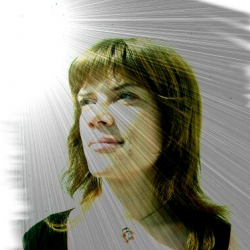Просмотр содержимого документа
«Much / many Количественные местоимения»

Местоимения Much, Many, a lot of
Much (много)
“ Much” употребляется с неисчисляемыми существительными.
I don’t eat much butter – я не ем много масла
Do you have much time? – у вас много времени?
www.justonecaress.ucoz.net

Неисчисляемые существительные
Meat
Sugar
Water
Milk
Juice
Snow
Cheese
Time

Местоимения Much, Many, a lot of
Как правило, much не употребляется в утвердительных предложениях. Только в вопросе и отрицании.
We haven’t got much snow.
Do we have much rain in Autumn?

Местоимения Much, Many, a lot of
Many (много) употребляется с исчисляемыми существительными во всех видах предложений (отрицательных, вопросительных, утвердительных).
We don’t need many apples
Do you have many apples?
I have got many apples.

Исчисляемые существительные
Apples
Tomatoes
Potatoes
Loaf of bread
Slice of meat
A glass of water
A glass of juice

Местоимения Much, Many, a lot of
A lot of (много) – употребляется как с исчисляемыми, так и с неисчисляемыми существительными во всех видах предложений.
We don’t have a lot of juice
We don’t have a lot of tomatoes
I have got a lot of friends.

Вопрос:
Если “a lot of” употребляется и с исчисляемыми, и с неисчисляемыми существительными во всех видах предложений,
тогда зачем нужны местоимения “much” и “many”?

Ответ:
Much и many не всегда можно заменить местоимением a lot of. Они нужны еще и для того, чтобы задавать вопросы, начинающиеся со слов How much?/how many? – сколько? (как много?)
How many – исчисляемые
How much – неисчисляемые
How many books do you have?
How much butter do we have?

Write “how much”/ “how many”
Model: How much coffee do you drink?
- … … books about animals do you have?
- … … pens are there in your bag?
- … … chocolate can you eat in an hour?
- … … salt do you like in your soap?
- … … water is there in the mug?
- … … sugar do you want in your tea?

Write “how much”/ “how many”
- How many books about animals do you have?
- How many pens are there in your bag?
- How much chocolate can you eat in an hour?
- How much salt do you like in your soap?
- How much water is there in the mug?
- How much sugar do you want in your tea?

Fill in the gaps. Write “much” or “many”
- Your teacher always asks … questions.
- We don’t have … water.
- … children like ice-cream.
- There isn’t … jam in the jar.
- There aren’t … shops in this street.

Fill in the gaps. Write “much” or “many”
- Your teacher always asks many questions.
- We don’t have much water.
- Many children like ice-cream.
- There isn’t much jam in the jar.
- There aren’t many shops in this street.

Fill in the gaps. Write “much” or “many” and the words:
People
Sweets
Books
Museums
Food

Model: I have a lot of friends. I know a lot of people in this town.
- We’re not hungry. We don’t need … … (food)
- I’m allergic to sugar. I don’t eat … …
- I like to read. I have … … in my room.
- This town isn’t very interesting for tourists. There aren’t … … in it (museums).

- We’re not hungry. We don’t need much food.
- I’m allergic to sugar. I don’t eat much sugar
- I like to read. I have many books in my room.
- This town isn’t very interesting for tourists. There aren’t many museums in it.
ДЗ: Переп и шите предложения, используя “a lot of”.
































